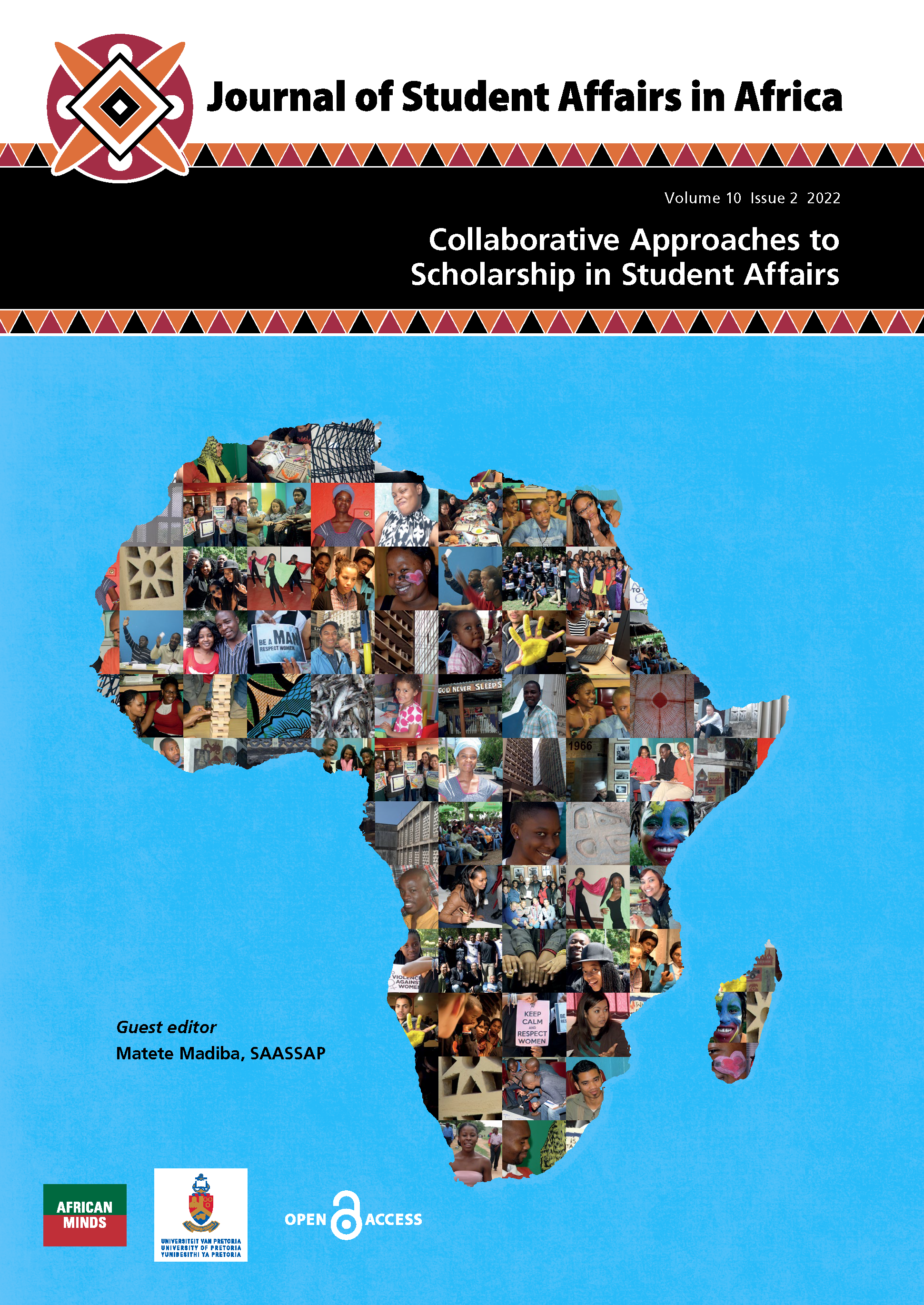An Exploratory Study of the Effects of the COVID-19 Pandemic and Lockdown on the Emotional and Social Well-being of Students Enrolled at a University of Technology
DOI:
https://doi.org/10.24085/jsaa.v10i2.3596Abstract
This qualitative descriptive study explored the effects of the COVID-19 pandemic and the
subsequent lockdown on the emotional and social well-being of students enrolled at the Durban
University of Technology, South Africa. A sample of students was selected across all levels of study
(first, second and third years and postgraduates), using convenience sampling. Data saturation was
reached after interviewing the fifteenth participant on Microsoft Teams. The interview schedule
included details on understanding how the pandemic and the ensuing lockdown affected students’
emotional and social well-being. Interviews were recorded, transcribed and subjected to content
and thematic analyses. Four broad themes emerged, viz., fears associated with coronavirus and its
transmission; the lockdown experience; personal anxiety and mental health; as well as financial
distress. Our study highlights the potential risks associated with the emotional and mental health
status of our cohort in the advent of the COVID-19 lockdowns that characterised the immediate
responses of the South African Government and institutions of higher learning to the pandemic
outbreak. These data may assist our understanding of the possible adverse effects on emotional and
social well-being amongst a university population. These are important factors for higher education
institutions to consider in order to provide better mental health support to students.
Downloads
Published
Issue
Section
License
Copyright (c) 2022 Nalini Govender, Poovendhree Reddy, Raisuyah Bhagwan

This work is licensed under a Creative Commons Attribution-NonCommercial-ShareAlike 4.0 International License.
Authors who publish with this journal agree to the following terms:
Authors retain copyright and grant the journal right of first publication with the work simultaneously licensed under the Creative Commons Attribution Share-alike 4.0 International License that allows others to share the work with an acknowledgement of the work's authorship and initial publication in this journal.
Authors are able to enter into separate, additional contractual arrangements for the non-exclusive distribution of the journal's published version of the work (e.g., post it to an institutional repository or publish it in a book), with an acknowledgement of its initial publication in this journal.
Authors are permitted and encouraged to post their work online (e.g., in institutional repositories or on their website) prior to and during the submission process, as it can lead to productive exchanges, as well as earlier and greater citation of published work (See: The Effect of Open Access).


